The young girl disliked that there were those "beneath" her in status, like the servants, but not in the sense that, like her siblings, they found the poor to be distasteful. Tilo seemed to not understand what made her any different from the servants. They were all
Mammen, born in Ruzrugh. Why was she any different from them?
Of course, this confusion only led to more hatred from Tilo's family. Her older brothers mercilessly tormented her for showing compassion to the "lessers" and her parents punished her when she tried to help them. It was not the place of a Countess, or rather a future Countess, to help those who were meant to serve her.
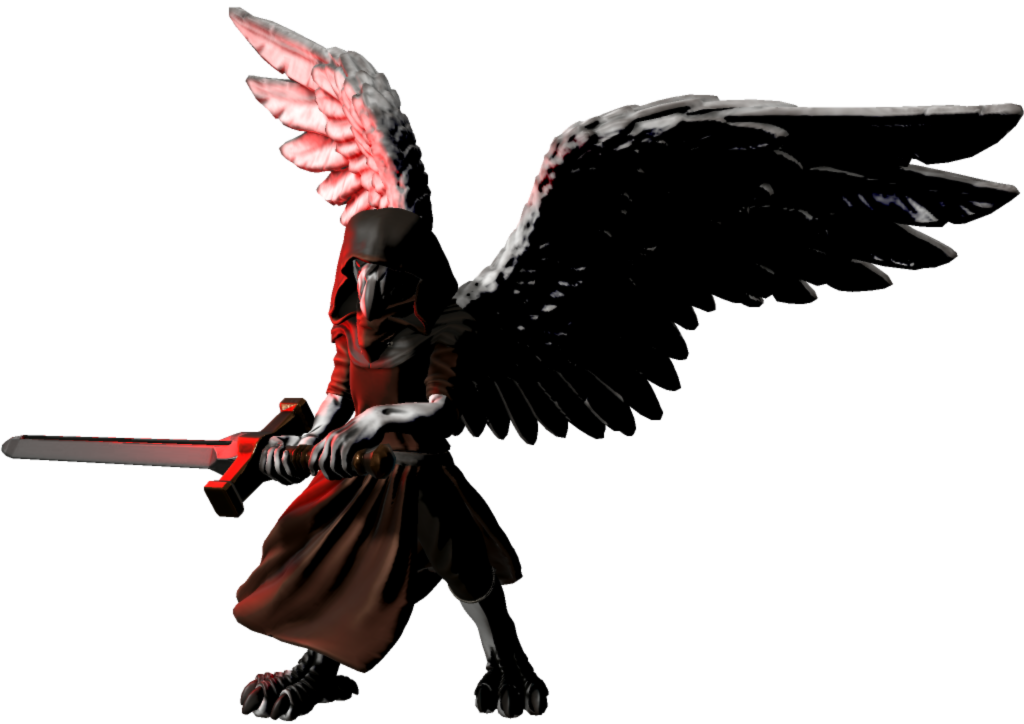
Don the Forsaken by Jarhed
Luckily for her family, she was the youngest, set to inherit no title and no power.
At least, that was how it was meant to be, if not for a certain man named Tesla Stronglung, and an underground alliance of criminal gangs led by Beastmen, which began seizing power around the eastern half of
Udai. Tesla himself, the leading gangster of the group, managed to use his influence to seize Ruzrugh, and the criminals under his employ ransacked the homes of many Counts around Ruzrugh, including the Sur family.
Tilo happened to be captured instead of killed, for Stronglung believed he could use her for some political advantage, but she was freed during a small slave revolt where the future Angel of Amukk, Don the Forsaken, broke free. He saved Tilo and brought her and some others to Amukk, where he pledged his sword to the future God. Countess Tilo, now officially the Countess after watching the Stronglung and his lackeys kill her family, had been brought now to Berlem. To
the United Holy Front. To
Amukk.
United Holy Front
While others were skilled warriors, the Countess was not. She asked for Amukk to help her free her city, to help the innocent people struggling under Stronglung, and Amukk agreed, asking for her to stay behind. Tilo refused, insisting that she come along, and another advocate in Amukk's employ spoke out in support of her. Amukk's right-hand man, Gok the Archmage.
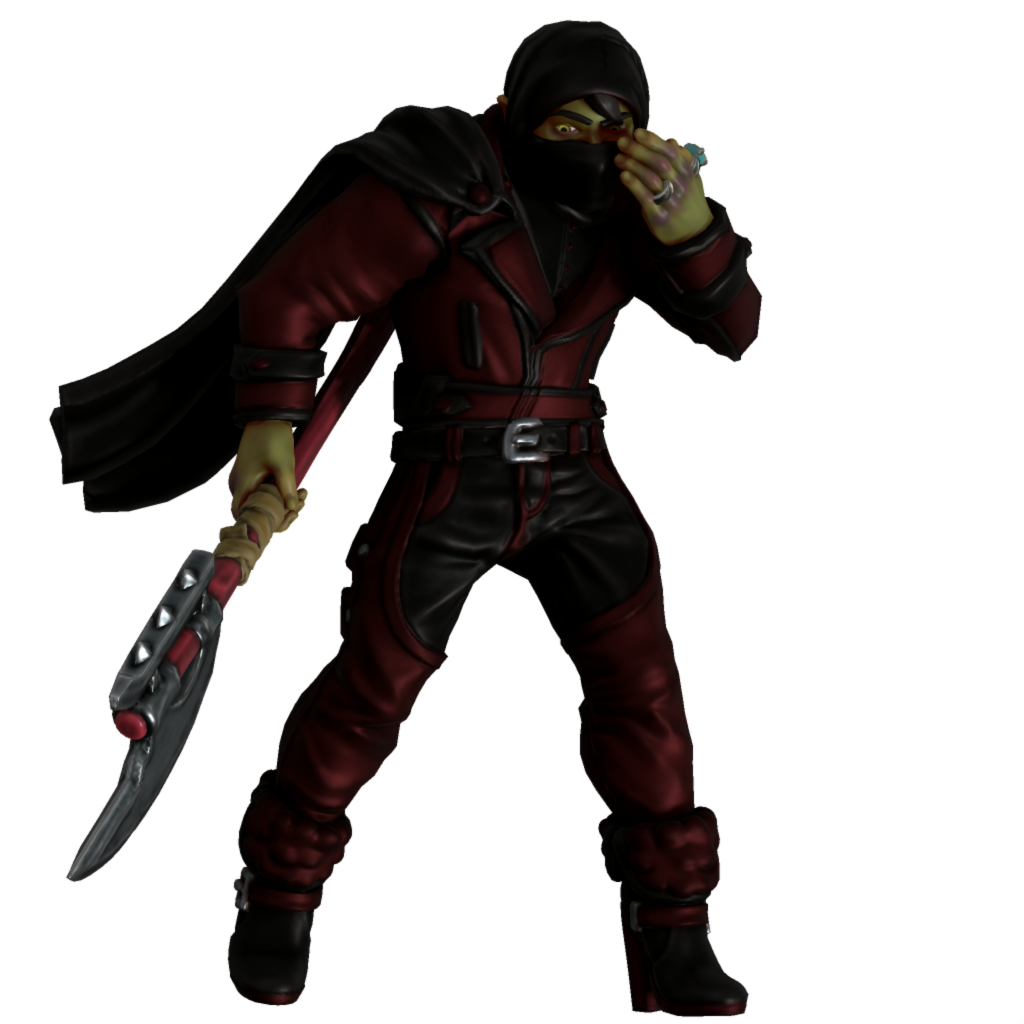
Gok the Archmage by Jarhed
Gok convinced Amukk to let Tilo go with them to free Ruzrugh, and the future God agreed, as long as his two wisest advisors, Gok and Yogal the Gray, watched over her. She also asked for a small detachment of other soldiers from the United Holy Front to watch over her, since she couldn't fight at all.
In this small group was Lualyrr Aleth, who would later go on to be the closest advisor to Count Toll and his muscle during his criminal reign. It is here, alongside the connections to the Sur family, that Count Toll's footsteps begin to become apparent in the shadow of Countess Tilo. The roots of the greatest villain in history reach into the War of Mercy waged by the future God of Justice, the man who ushered in the Age of Heroes. History's greatest hero taught it's greatest villain, if Toll truly was Tilo.
In Ruzrugh, Gok and Yogal broke back into the Sur Castle, but much of Tilo's detachment was killed in the infiltration, leaving only Lualyrr Aleth. Aleth protected Tilo and told her that she would always be there, as Amukk asked her to be.
Aleth had not undergone the
Splitting of the Self ritual yet, to fully transition, but she still dressed and identified as a woman. To infiltrate Ruzrugh, Tilo had also apparently disguised herself by dressing as a boy, and is noted to have acted far more comfortable and confident. Some say that meeting Aleth inspired Tilo to begin working more towards being who she wanted to be. If that is the case, the person she wanted to be was not a Countess, but a Count. Count Toll.
Much success has been pinned on a piece of advice Gok the Archmage gave to Countess Tilo in Ruzrugh. A single phrase she always attributed to him, and one that became a mantra of Count Toll's regime:
"Belief is the key to victory."— Gok the Archmage
Ruzrugh was freed, and Countess Tilo remained there most of the remaining years of the War of Mercy, visiting Amukk, Gok, Yogal, and Don again in Berlem when she had the chance. But most of her time was spent learning from Lualyrr Aleth.
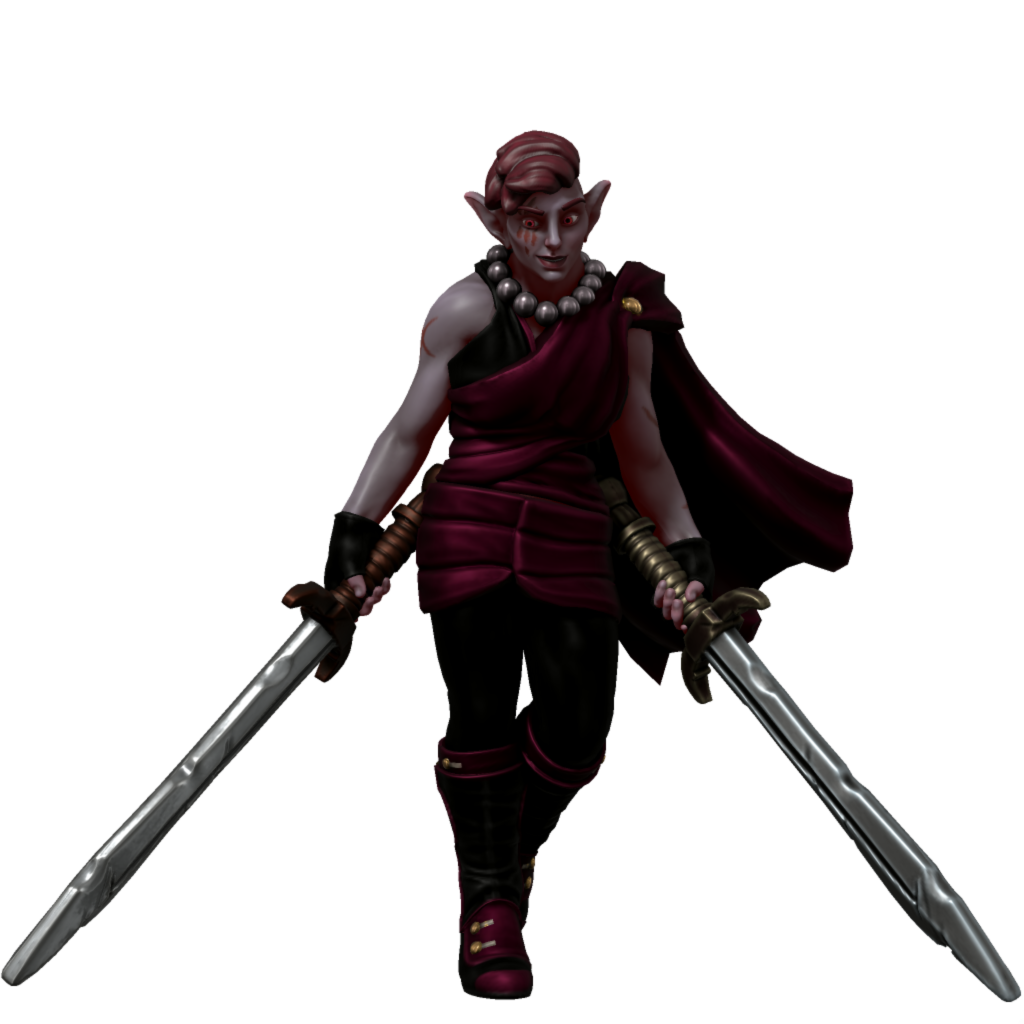
Lualyrr Aleth by Jarhed
The Count of Sur
Aleth supposedly taught Tilo how to fight, alongside Amukk himself, while many say Gok the Archmage, one of the most skilled mages in history, taught Tilo how to use her magic. After all, Tilo could never fight... but Count Toll was the monster who led an empire of evil. He had to be a powerful fighter, and Tilo was around some of the most impressive warriors and mages to ever live. That had to have been where it came from.
During these years after joining the United Holy Front, many say that Tilo only wore dresses when she had to make public appearances and addresses to the people of Ruzrugh. When with her friends, mentors, and the soldiers of the United Holy Front, she dressed in male clothes and asked people to call her "the Count of Sur."
There was another figure in the United Holy Front that Tilo knew well, though their relationship was not as strong.
Korras Commonbrush, a lower-ranked but still influential judge in the
Stallbourne Court of Mercy. Commonbrush talked of justice, and was a confidant who had Amukk's ear fairly often.
But the Count of Sur had experience with the
Helft Empire, and knew the justice of the court was not something that would benefit the world like Commonbrush said. Even if Korras believed what he said, the Count of Sur knew that he was trying to sway Amukk into a losing deal.
Sadly, the voice of a child was not as loud or listened to as the voices of others in the United Holy Front. Korras Commonbrush was allowed to spread his ideas to Amukk, and even recruited one of the top members of the United Holy Front, Klung the Just, to work with the Court of Mercy as Amukk's representative.
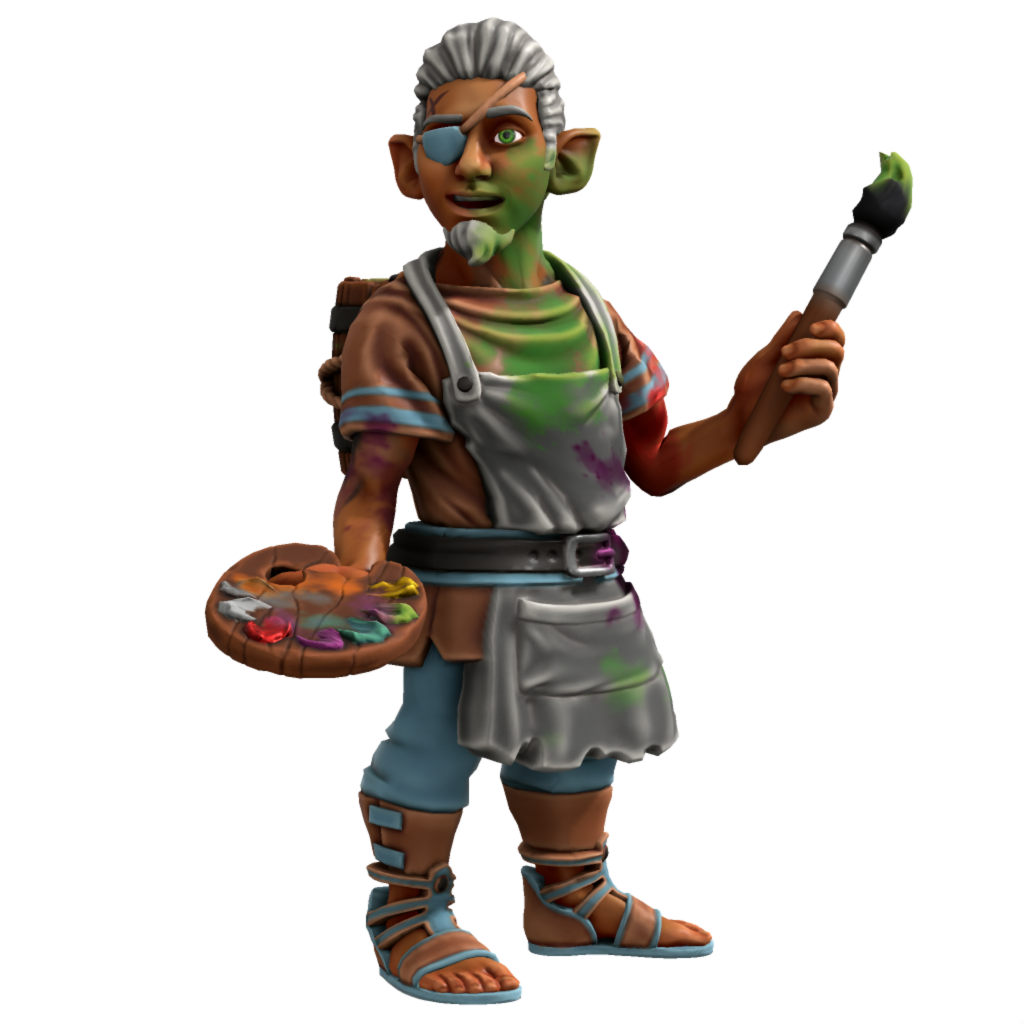
Korras Commonbrush by Jarhed
The Count of Sur felt ignored by everyone but Lualyrr Aleth and, according to many accounts, Amukk's closest advisors: Gok the Archmage and Don the Forsaken. Don would sit with the Count and listen to whatever they had to say, often seemingly stirring up conflict and telling the Count that if they truly did not like what was happening, that they ought to do something about it. But the Count of Sur still believed in Amukk, and Gok the Archmage was often there telling the Count that they needed to keep going, never giving up on what they believed.
"You've got a strong sense of justice. I can't say if you're right or wrong... but you know what your heart says. What have I always told you? Belief is the key to victory."— Gok the Archmage
The Count of Sur went to Heaven with the rest of the United Holy Front. They trained every day with Amukk, Lualyrr Aleth, and Gok the Archmage for it, but how strong they were at the time was unclear. Most say that Amukk raised the Count of Sur, and considered them to be the closest he really had to a child, even having joked a few times that if he were to ever have a child, they would have to live up to a high standard. Accounts like this disprove an idea started later, that Count Toll was created because he was spurned by Amukk and fled. All records indicate that in both invasions of heaven, the Count of Sur marched right beside the man known as Amukk, ready to kill the
Nameless God.
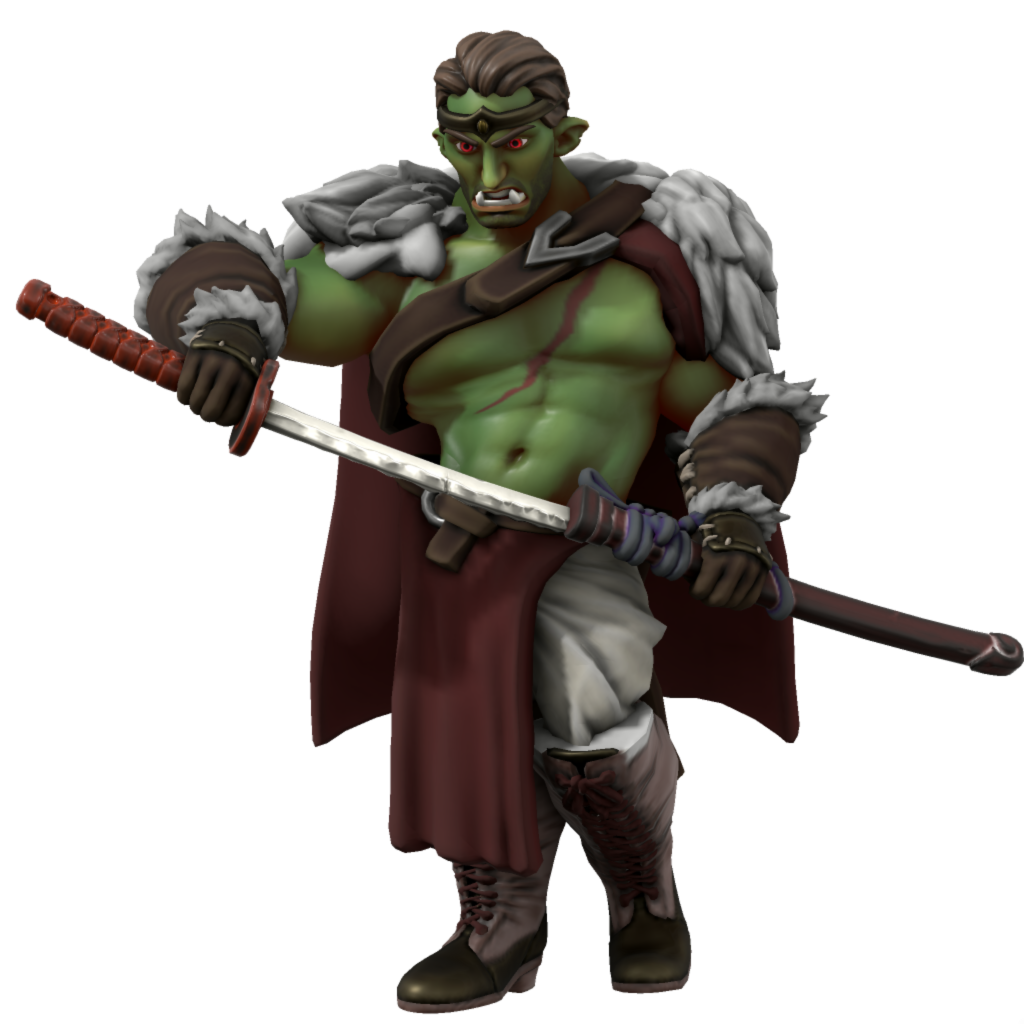
Amukk by Jarhed
Returned from Heaven
Countess Tilo never arrived back on Totania, nor did the Count of Sur. Some lists of the soldiers that went to Heaven count them both among the dead during the second invasion of Heaven in the year 0. Very few died then, but some say it is why Amukk retreated to Heaven and stayed there. His child was dead... what reason did he have to remain to raise them?
But that is not true. A new person arrived on Totania with the remnants of the United Holy Front, those who didn't remain in Heaven with Amukk.
Arrival of the Count
Lualyrr Aleth and Count Toll are said to have performed the
Splitting of the Self ritual that helped them to magically change to their preferred gender together, with Aleth performing it for Toll and Toll performing it for Aleth. A ritual that usually is the act of an individual, alone, was instead a moment of trust between two people who had only each other. A bond closer than any other, where both were comfortable enough to place the very future of their own identities into the hands of the other, an intimate moment of friendship and trust that has become a legend in itself.
Some say they performed this ritual upon returning from Heaven, but most are certain they underwent the process before leaving the celestial domain of the Gods. One story says they did it before fighting the
Nameless God with Amukk, as a final bit of motivation to strengthen their resolve. In this version of events, Toll is believed to have said:
"I would much rather die as the person I am in my heart than live with the mask I was born wearing."— Count Toll
Other versions say that they performed the ritual before the throne of the newly crowned God Amukk, with his blessing and protection. Versions that insist that Toll and Aleth were spurned by Amukk say that they did it in a part of his realm where he could not see, as an act of rebellion. Whatever the case, most agree the pair performed this ritual in Heaven, which strengthened the ritual's power due to the proximity to
Janus and Limbo.
Most believe that Count Toll and Lualyrr Aleth smuggled themselves onto the ships of the
United Holy Front when they left Heaven. Whether this was because they were no longer welcome or because they feared how they would be treated after the ritual is unclear. But only after the ships were docked did Count Toll, the charismatic man from Ruzrugh, make himself known to the world, with his right-hand, the female warrior Lualyrr Aleth. Few knew what waves would follow in their wake.
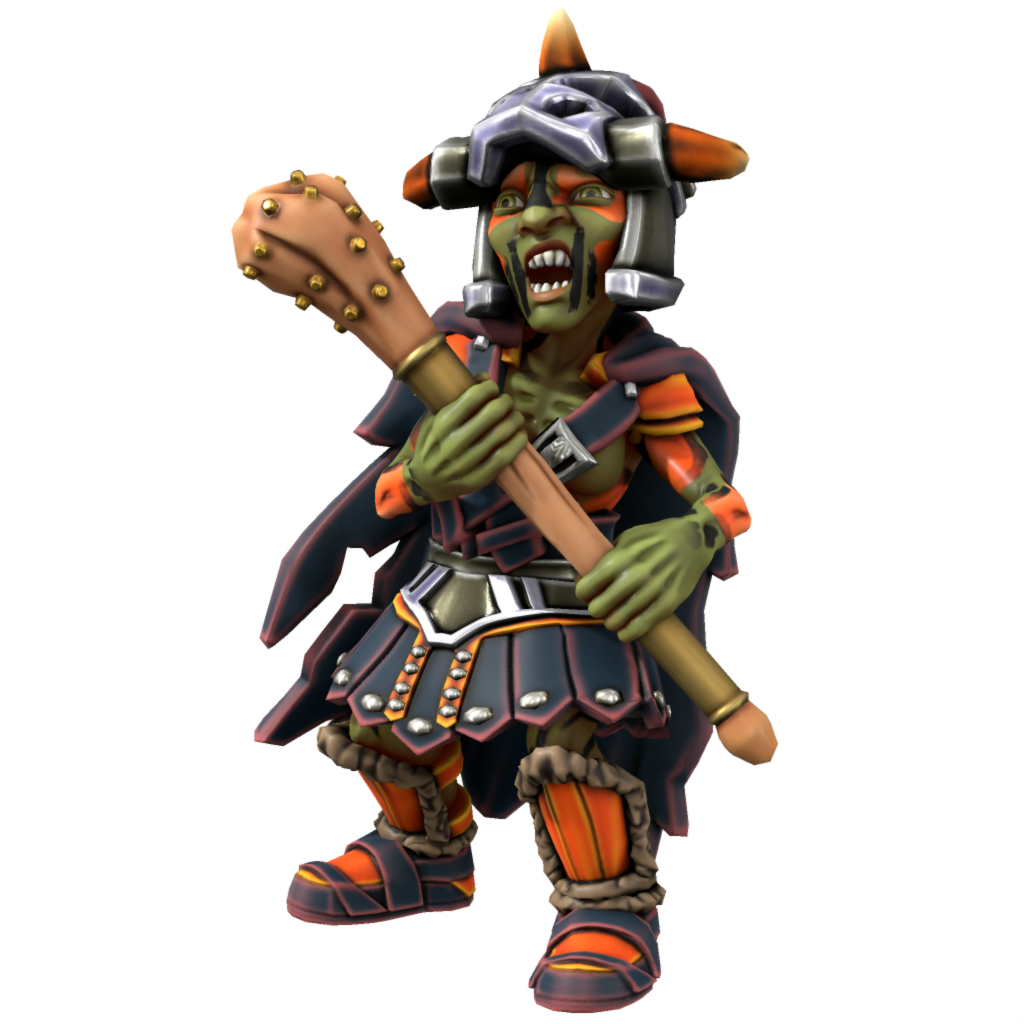
Jibral by Jarhed
The Lawless City
For a short period of time, Count Toll accumulated his wealth once more in Ruzrugh. No one is quite certain what spurred him to his next great deed, but he is said to have planted an enchanted explosive device in the city of Stallbourne, an attack against the very same
World Court that Amukk had endorsed prior to his ascension. Some connect this back to the World Court's disregard towards Goblin refugees after
the Dreamless Sleep, where they outlawed most cities from taking in Goblins and called it a criminal act to welcome them. Only one city disregarded this:
Alzirgos, the only remaining major settlement run by Goblins. But Humans had started to settle in it too, and it could not hold every Goblin.
And so, Count Toll swooped in, meeting with Goblin leaders including the famed Matriarch that saved them, Jibral. But the Count could not act as freely as he wanted if he wished to remain a prominent figure in Ruzrugh and global politics and maintain the good graces of Amukk's forces. He had a choice to make: save those in need, or maintain his status.
Most would choose the latter, but that is why there is only one Count Toll. There is not and has never been another man like him.
Atop the ruins of the warrior city-state of Retrypes, a goblin stronghold from
Ancient Ishada, Count Toll and Lualyrr Aleth gathered refugees. Not just Goblins left over after the Dreamless Sleep, but the oppressed, downtrodden, and villainized people from all over the world. He spread word that anyone who was neglected and outcast, unwelcome everywhere else in the world, would be welcome under his banner. If the law was your enemy, there was one place safe from all trouble. A city with no laws, built by Toll and Aleth. A city known as
Vitroveil.
Retrypes was chosen for many reasons. Toll knew it to be a land near enough to Stallbourne that he could launch his operations from there, but still difficult enough to invade from Stallbourne that his people would be safe. After all, the
Helft Empire tried invading Retrypes for hundreds of years to no success. It was also local to many of the first refugees, and easily accessible to many others.
Most of all, though, it was a location that was once the home of one of Count Toll's greatest influences, the warrior and scholar Goblin known as Kreng. Kreng was the head of a resistence movement against the Helft Empire before they became the World Court, and had been a powerful and influential figure that Toll based most of his persona and platform on. It had worked once... it could work again.
Toll knew that his message would be skewed in the eyes of the world. These people were not in terrible situations for no reason, they had been put in those situations by the people who held power in the world. Monarchs, nobles, and the World Court itself. The same individuals who controlled the global historical narrative. While those in need of help found it and understood it, a majority of the world saw a distorted version of this spread by the World Court. A message of a tyrant luring people to an evil fortress to join his army of monsters intent on destroying the world order and promise of peace they had wanted to make.

Gellark Lionrage by Jarhed
An excuse for them to never make that peace. It was Count Toll stopping them, and certainly not their own desire to never truly create peace.
Lualyrr Aleth is said to have been the one to suggest that the Count should lean into this. Any hint of kindness that Count Toll may have had was now hidden behind the identity of a villain who was the enemy to peace and justice under the World Court.
Count Toll used this to get his message out, as the World Court would publish his evil speeches unchanged if he made himself out to be evil enough, and with that, he spread the message that the World Court was up to something and was not to be trusted. Many say the Judges saw Toll as a necessary evil, and that is why they never invaded Vitroveil. Instead, they let him thrive, taking all the ire that may otherwise have gone to them.
Some World Court affiliated heroes did. After all, many attribute the arrival of Count Toll onto the global scene with being one of the inciting forces behind the
Age of Heroes. One cannot have heroes without a villain to match them, and so Vitroveil constantly drew in heroes who tried to take down the Count (yet often could not make it past Aleth, if they even reached her).
Count Toll welcomed this. He had become a villain largely because of these burgeoning heroes. They were only heroes because they, for the most part, supported the status-quo. A status-quo of oppression, suppression, and tyranny, where someone always had to be the villain, and often, it ended up as entire groups of people. Goblins,
Orcs,
Ophidians,
Oni, Giants, Emetians, Crocutions, Felids, Minotaurs,
Devils... the list was endless. Scapegoats to consolidate power in the hands of the already powerful
Elves,
Dwarves,
Korvians, Humans, Halflings, and other species that controlled a majority of the world. A speech on the subject which has been attributed to Count Toll reads as follows:
"If heroes perpetuate the way things are, then the world could use someone to quell its greatest issue. Totania is overrun with heroes, and it is all the worse for it.
Lord Amukk sought justice... but that very word has become a prayer for something that will never happen in this world. Justice is the World Court, as long as they hold power, and they pervert his dreams for their own power. It is disgusting, to hear the screams of those in need and see those that dare to wear his name and blessings ignore them!
This is not justice, and they are not heroes. This is an age of lies, of imitators who grow from the shadow of a great man. But it is called justice because the Court declares what is and is not, and for that same reason they are called heroes.
What am I then? I act not in their interests, and I am scorned by all who hold any fragment of power in this world. Champion of the downtrodden, I do not see fit to call myself a hero, it feels a curse to me now that those pretenders wear it, and besides it is a prideful thing for one to declare themselves great.
We need no champions, no heroes, and no justice.
What we need is someone who looks out for those in the margins, where the boots of the powerful step, those the true monsters call monsters. What we need is an exterminator whose job it is to end those who would call themselves a hero and dare to do anything but save the lives of those truly in need. What we need is a villain."— Count Toll
He often said a monologue was a villain's greatest weapon, and spoke louder than anyone else.
The most famous of those previously mentioned stories of heroes going after Toll took place in the year 6, when King
Gellark Lionrage of Nerodil entered Vitroveil and made it to Count Toll. He did not draw his blade, but instead had a conversation with Count Toll, trying to get Toll to stop. But Lionrage retreated, some say because Aleth defeated or intimidated him, while others say Toll himself defused the situation and convinced Gellark he was right.
Toll was, however, defeated by another hero, the seventh
Grand Wizard of the
Draconians, Perzita Theldrar. Theldrar charged in, fighting every villain in Vitroveil and thoroughly beating all of them, including Toll. Well, all of them except Lualyrr Aleth, who drove Perzita back, only to learn that Theldrar was not there for justice, but had merely hoped to find a worthy fight. She expected it from Count Toll, who she had heard was so formidable, but when it came to a fight, he was not as impressive as his most trusted ally.

Perzita Theldrar by Jarhed
As a matter of fact, Count Toll always avoided fighting. Perhaps he didn't want to get his hands dirty. Perhaps he truly did intend for peaceful resolution above all else. Or perhaps he simply could not fight to save his life.
The Many Crimes of the Great Villain King
To list every crime attributed to Count Toll would be a task too great for any historian, especially since many of his actions have since been classified by the World Court, and many more are simply things done by those inspired by him or under his command. But below, his greatest crimes will be listed, to give context for why he is seen so unfavorably around the world.
Global Terrorism
Multiple terrorist incidents each year were attributed to Count Toll. While some are believed to have been falsely attributed, as a majority of these incidents targeted only high profile targets, never being near enough to large civilian centers to harm civilians.
Innocents died in some of these attacks, sometimes because they were in a place they were not meant to be, and other times because a copycat, perhaps even the World Court itself, involved them in an attack to sully the Count's name. He was a villain, but it should be known that he had standards and knew his own boundaries and limits.
These incidents spanned from the far reaches of the
Jihdi Empire to to the mountains under the
Dwarven Kingdom, to the tight streets of
the Korvian City, and at every crime scene, the same message was left:
"The bells toll for peace, forged in the blood of the liars."— Count Toll
Unfair Play
He kidnapped a group of young hopeful heroes who wanted to work for the World Court, and it is believed that he tortured them in a warehouse. The heroes managed to get their location to the World Court, and hoped to be saved, but the Court merely wiped the warehouse and the small town it was in off the map. Luckily, Toll had moved himself and the heroes away, aware of what would happen, and it is here he said a phrase that has been used to perfectly encapsulate his deplorable world view.
“You trusted the World Court to play fair. Here’s the thing, boys. Justice isn’t fair. It’s a set of rules we can’t decide but we all have to play by. It never lets you free, and lies more often than the unjust. Only criminals have the respect to tell you the truth.”— Count Toll
The truth he told them was enough to sway them to his side, and those boys, almost heroes, became a group of enforcers who helped him commit more crimes around the world. Some believe that Toll's torture of the boys was softening them up so that they would be more malleable, while others believe that he lied to them under the guise of "saving them" from the World Court.
The Commonbrush Murder
But the crime most hate him for, though it was hardly his most violent act nor the one with the largest death toll, is the killing of a single man. One individual by the name of
Korras Commonbrush, a fellow follower of Amukk from the United Holy Front. The man who reformed the
Stallbourne Court of Mercy and basically created supposed world peace under the World Court. He was a beloved man, but Toll's hatred for the World Court seemed to in part be hatred for Commonbrush. And so, this was Count Toll's only solo mission. Not a single ally or soldier joined him, not even Lualyrr Aleth, as he wanted to do this alone, invading Stallbourne, the den of the World Court, and entering Commonbrush's home.
The two had a civil conversation, so the story goes, that ended with Commonbrush finishing the final stroke on his last painting, taking one final sip of tea, and Count Toll wrapping his hands around the Halfling's throat, choking him out. One of the few direct actions of Count Toll, done by him and him alone, was the death of a man he worked with in his youth. A man who, like him, once spoke for the views of the holy Amukk, and a man who, like him, exploited Amukk's views for his own gain, supposedly in the name of the greater good.

Kreng by Jarhed
It was an unforgivable act. If anyone hadn't viewed Count Toll as a villain before, then sneaking into the home of a man he once fought alongside, who had retired and swore to a life of peace, and choking him out over a cup of tea was the last straw. Across the world, people rallied together, demanding that something to be done about Toll.
The World Court still refused to invade Vitroveil, claiming the spirits of Retrypes were repelling them, and that it was all the fault of Kreng and his curse upon them. Of course, Kreng had not cursed them. They simply saw Toll as a useful tool.
What they did do, however, was increase their efforts to stop his supporters. It was this that ultimately led them to capturing Count Toll.
Trial of the Count
Those young hero hopefuls that had begun working for Count Toll were the victims of the Court's bolstered activity, killed in action. It is said Count Toll locked himself away for a full month of mourning before he was seen next, and when he was next seen, he turned himself over. He was arrested alongside Lualyrr Aleth, but only Aleth was taken in. The Court, away from sight, freed Toll and let him run away.
Toll didn't understand why they did this, and so he continued handing himself over to them, but they kept letting him go. Even as Lualyrr Aleth was sentenced to imprisonment forever in the
World Cell, Toll roamed free, growing older and tired. His schemes, however, grew grander, as he tried to force them to arrest him.
Finally, he waltzed into Stallbourne itself, knowing they wouldn't kill him. He set off an elaborate trap, cornering multiple judges in view of a large portion of the Stallbourne citizenry. They had no choice... they had to arrest him.
The trial of the century, it was called. The Trial of the Count was an event that people from all over the world traveled to see, for it was a spectacle greater than any other. The greatest villain would finally be punished... he would certainly be found guilty, everyone knew it. But how? What would happen in this landmark case?
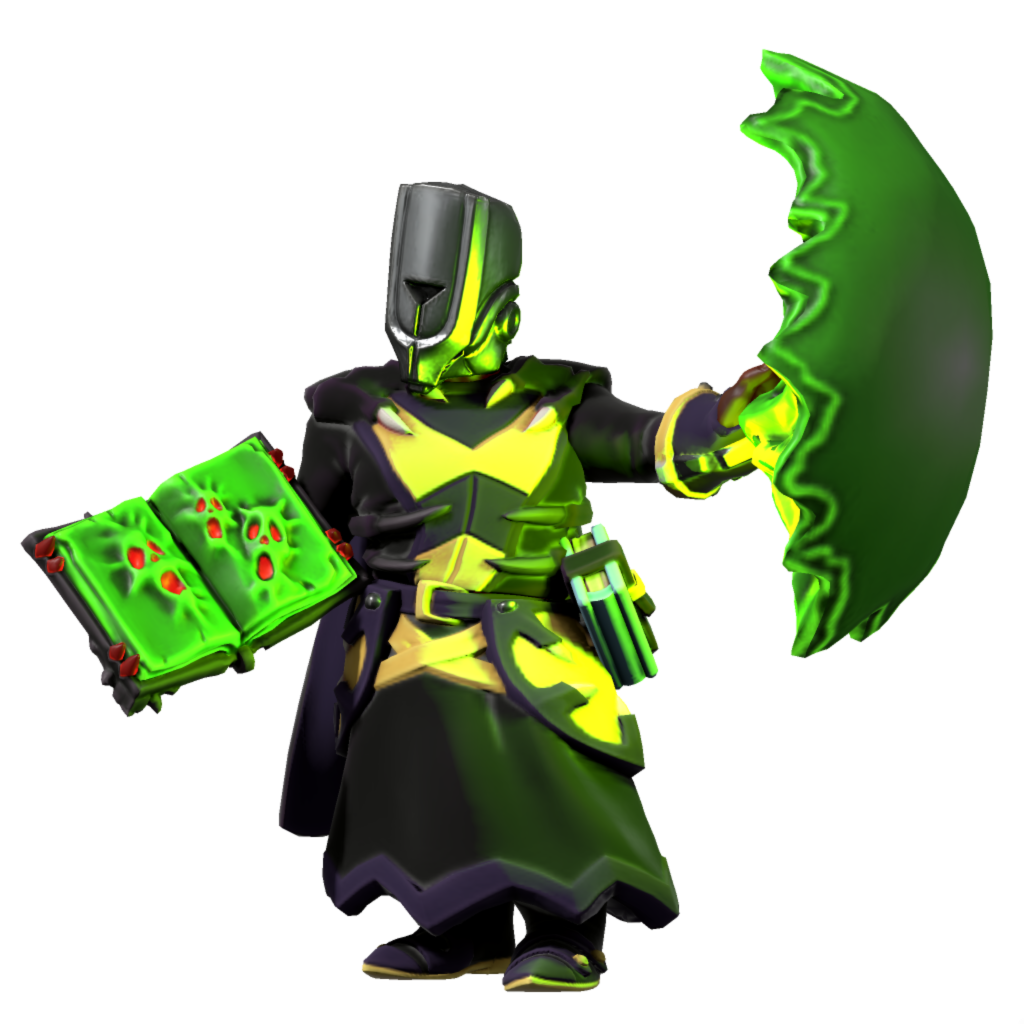
Judge Delta by Jarhed
Count Toll denied almost none of the charges. He shouldered the blame and burden, and the World Court was happy to have their boogeyman. But he did say that he never hurt an innocent. He asked the World Court to list out every person who was ever directly harmed by him and his actions, and to try and tell him who among them was innocent. The World Court responded with themselves, and Count Toll said only:
"This is the end of my life. Do not sentence me with a joke... take this seriously."— Count Toll
Things escalated, as the Court tried to use evidence they fabricated, and Count Toll disproved it easily. Large parts of this heavily publicized event were redacted in official transcripts, and those in attendance forgot large chunks of it. Many who witnessed it were even arrested and imprisoned as well, and some supporters of Toll claim that a deep secret of the World Court was revealed during this trial, one so classified that anyone astute enough to have caught it or been caught in it had to be imprisoned for eternity.
Thus, Count Toll was sentenced to the same fate. Reunited with his closest companion for all of existence, he was sentenced to the World Cell, where he and all the other greatest threats to the World Court would remain forever.
Why?
Many believe that Toll did this for a number of reasons, and that none of them were guilt. If he felt guilty, he likely wouldn't have defended himself against false claims.
First, it is believed he fell into a deep depression after losing his students, blaming himself for their deaths and seeing that he could not make any changes in his own lifetime. If he could not make the necessary fixes in his lifetime, he would live forever, carrying on the spirit of rebellion and "evil" in honor of those he lost.
Second, he was growing old. Fearing death, not wishing to see Amukk again perhaps because he feared his former mentor would disown or hate him, or perhaps because he did not succeed in his goal and could not face him. Whatever the reason, he did not want to die. It is known, however, that Toll did stick strongly with his belief in Amukk even after living a long life of crime. Many considered it a hypocrtical stance, to fight the World Court and follow Amukk. But Toll said he and Aleth were some of the only true followers of Amukk's word.
Finally, some say that Toll believed it was his fate to live forever, or at least as long as the World Cell did. If it fell, that meant the end of the World Court in a way. Thus, his death would only happen if the World Court died. To the Count, there was nothing more poetic than going out together.
The Legend of the Toll
Count Toll left a single message behind. A prophecy, some say, though nothing has ever come of it. Carved into the walls of his home in Vitroveil were the words:
"A bell tolls for all the hours of the day,
But fear not, though the first and second may
Bring terror, and the third and fourth despair,
With the fifth some peace may be repaired.
When six tolls ring out, hell will all break loose,
But hold out for the seventh toll of the bell, the tightening of the noose
Around any who bring terror to those there and here.
The villains of the world even I fear."— Count Toll
No one is quite certain what this means, and what these tolls of the bell are meant to represent. Were these the mad ramblings of a man who had lost his mind in old age? Or was it, instead, a message of a man who knew some kind of future beyond time?














Comments